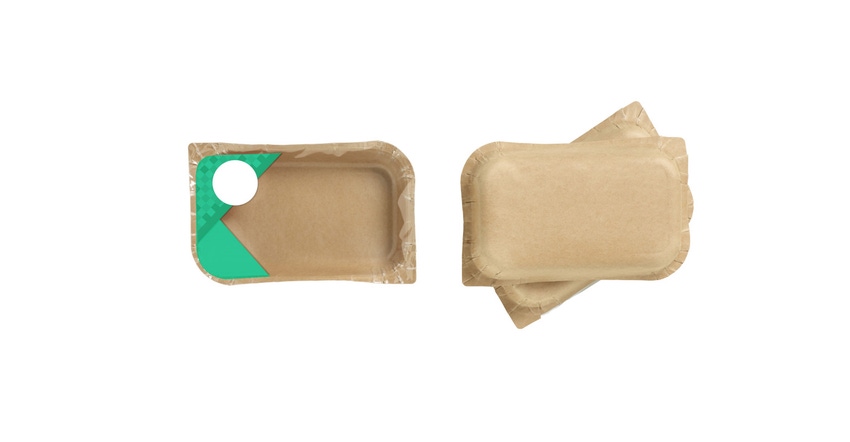Syntegon Develops Paper-Based Food Packaging as Part of EIT Food Project
EIT Food combines industry and research for environmentally friendly packaging solutions
December 16, 2021

As part of an EIT-funded project, Syntegon has developed paper-based trays and cups for sensitive food products.
Together with partners from industry and research, namely Fraunhofer Institute for Process Engineering and Packaging in Dresden, Colruyt Group, Strauss Group, and the University of Reading, Syntegon is implementing the EIT project “PACK4SENSE” (paper packaging for sensitive foods) to develop a sustainable packaging concept. EIT Food, a large and dynamic innovation community, is supported by the European Institute of Innovation and Technology (EIT), a body of the European Union.
Optimal Recyclability
The aim of the project is to pack even sensitive products with high barrier properties in more sustainable materials. Syntegon uses a special paper that is particularly stretchable and tearproof thanks to long cellulose fibers, enabling the production of sealed trays and cups with a depth of up to 30 mm.
A recycable barrier layer made of 95% mono-materials provides optimal product protection. The paper and the barrier layer, as well as the cover film can be easily separated, ensuring full utilization of its recyclability.
This sustainability advantage, however, also poses challenges for packaging manufacturers. On the one hand, consumers should be able to separate all components for waste sorting. On the other hand, paper and film must not be detached from each other unintentionally. To prevent this from happening, the TPU paper forming, filling and sealing machine from Syntegon forms paper and barrier layer in a common process by thermoforming and pressing.
“With the paper-based trays from the “PACK4SENSE” project, we have further developed our previous paper packaging solutions like the shaped paper pods – structured paper trays for the packaging of cosmetics and confectionery,” explained Matthias Klauser, project manager and sustainability expert at Syntegon.
Bringing Paper and Barrier Layer Together
The TPU is Syntegon’s flagship machine for paper forming. For the PACK4SENSE trays and cups, the paper runs directly from the roll into the feeder – the barrier layer required for sealing is applied and joined to the paper without any further conversion step. Alternatively, manufacturers can use a converter to connect paper and protective layer of mono-material without heating. A forming station presses the materials into shape before the trays are filled and sealed. In addition to using a particularly stretchable paper that can withstand wrinkling during the forming process, it is important to preserve the separability of the materials: a specially adapted geometry of the forming tools reduces the tension on the materials during the manufacturing process.
About the Author(s)
You May Also Like




